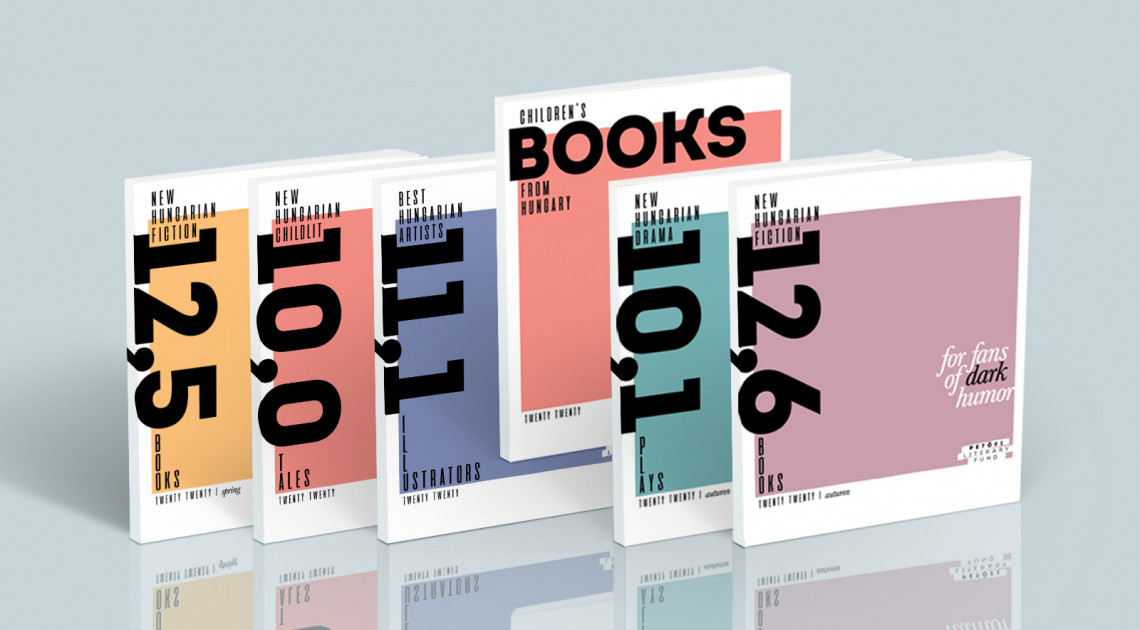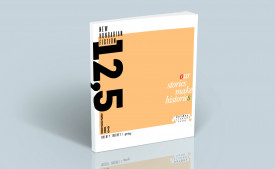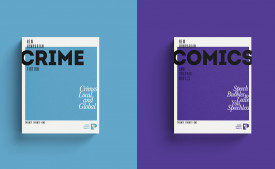Touches of Black Humor and Socio-Horror
In the spring, the Petőfi Literary Fund, which is responsible for promoting and popularizing Hungarian literature abroad, issued the first four parts of the series, a selection of prose literature from 2019, as well as volumes presenting works by the best illustrators and writers of Hungarian children’s literature and a catalogue of excerpts from children’s books selected by publishing houses. The recently published fifth and sixth catalogues focus on the Hungarian prose literature of 2020 and the best Hungarian dramas of recent years.
Now that 12,5 is out, 12,6 is here
As its title makes clear, New Hungarian Fiction – 12,6 Books is a continuation of the series the last publication of which bore the title 12,5 Books. The recent publication includes twelve novels from the array of engaging works published in the spring. As Nikoletta Szekeres, editor of the publication, remarked, “We managed to arrive at a selection which is strong from every perspective. In the previous publication, the various works were linked by the fact that they were personal stories, stories from our past, and stories which wrestle with our past, and while this is to some extent the case in the new publication as well, the themes in the autumn ‘best of’ are perhaps more diverse. Subtle irony is a recurring element, as is the absurdity of the tensions between everyday life and grand historical narratives, and indeed, the texts are not modest in their shades of black humor, which explains the subtitle of the publication: for fans of dark humor.” The themes on which the works touch are rich and varied, and indeed the writers themselves form a diverse cast, as legendary film director Géza Bereményi, for instance, fits nicely alongside Gerzson Nagy, who has only just published his first novel.
Gabriella Megyeri, the Petőfi Literary Fund’s creative director, noted the importance of design concept as well. As she observed, “in addition to ensuring that the publication had rich and varied content, we also considered it of fundamental importance to retain the exciting design, the various typographical solutions used to foreground the catchy slogans, and the minimalist, clean design which calls attention to the texts. We used the visual concepts envisioned earlier for 12,5 Books. The Petőfi Literary Fund looks on its publications which present contemporary Hungarian literature as products, and in doing so, it strengthens its own brand on the international stage. It is important that we present easily noticeable publications which will catch people’s attention and interest, and with the series, we emphasize the ways in which the various parts belong together.”
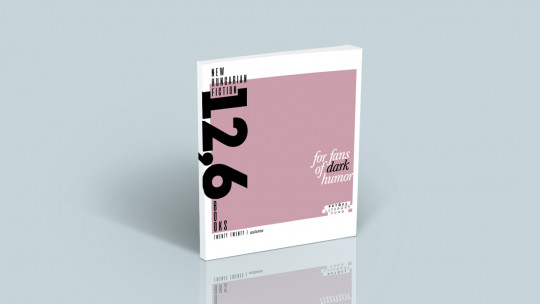
The works included in New Hungarian Fiction – 12,6 Books catalogue:
Géza Bereményi: The Hungarian Copperfield (Magvető, 2020)
Ádám Berta: The Snake’s Head (Cser, 2020)
András Cserna-Szabó: Extra Dry (Helikon, 2020)
Béla Fehér: Banana Grove (Kortárs, 2020)
György Ferdinandy: Unusual Happiness (Magyar Napló, 2019)
Róbert Hász: Marcell Fábián and Dancing Death (Kortárs, 2019)
Sándor Jászberényi: The Crow King - Western Stories (Kalligram, 2020)
Tamás Kötter: Men in Arms – Frontline Stories from the Second World War (Kalligram, 2020)
Gerzson Nagy: Afternoon With My Father (Kalligram, 2020)
Orsolya Péntek: Snow in Rome (Kalligram, 2020)
Tibor Pintér: The Madness of Harmony (Prae, 2019)
Andrea Tompa: Home (Jelenkor, 2020)
The publication is available for free here.
The theater gains ground
The Petőfi Literary Fund promotes all kinds of Hungarian literature by offering grants and assisting with the distribution of publications. Works of classical and contemporary theater and dramatic literature have also been included as part of a pioneering experiment in the Fund’s new system of grants. Applications for support for cooperative endeavors with foreign theaters and companies can be submitted at any time (decisions concerning applications are reached on a monthly basis). The publication New Hungarian Drama – 10,1 Plays introduces contemporary Hungarian dramatic literature to audiences abroad. The publication, which features samples from the ten best contemporary dramas of recent years, was given the subtitle socio-horror history, which refers to the socially critical perspectives found in Hungarian dramatic literature. As Dániel Levente Pál, General Manager of the Petőfi Literary Fund and editor-in-chief of the publications, has noted, “while Hungarian films and literature have done well abroad, the promotion of contemporary Hungarian drama in foreign languages seems to have lost a bit of its edge in recent decades. Although Hungarian directors are often invited guests at foreign theaters and regularly take part in workshops, only comparatively rarely have Hungarian works for the stage been translated and then transformed into productions on the basis of these translations. We are endeavoring to change this, both with the grant for theatrical collaboration and with the new publication.”
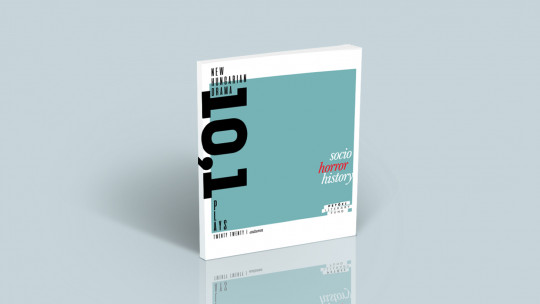
The works included in New Hungarian Drama – 10,1 Plays catalogue and their premieres:
Kristóf Kelemen: Observers (Trafó, November 24, 2018)
Dániel Ambrus Kovács: You’re In It (Jurányi Ház, April 10, 2019)
Csaba Mikó: Without Fathers (Theater Regensburg, November 8, 2014)
Andrea Pass: Impulses Evanescing (Trafó, December 14, 2018)
Béla Pintér: Our Secrets (Szkéné Színház, September 28, 2013)
Mihály Schwechtje: The Legacy (Jurányi Ház, February 28, 2019)
Borbála Szabó: Phone Doctor (Bárka Színház, May 7, 2011)
Csaba Székely: Mine Flower (Marosvásárhely, Yorick Stúdió, September 15, 2011)
Edina Tallér: One Minute More (RS9 Színház, April 23, 2011)
Zsófia Znajkay: And I in Her Lap (MU Színház, February 9, 2017)
The publication also offers a moving tribute to the work of János Térey, who recently passed away.
The publication is available for free here.
The Petőfi Literary Fund distributes the publications online to foreign publishing houses and booksellers, as well as to theaters. Hopefully, if the coronavirus pandemic is brought under better control, it will also be able to present the series in printed form in the Hungarian pavilions at book fairs.
Editor-in-chief: Dániel Levente Pál / Editors: Viktória Stift, Enikő Sándor, Nikoletta Szekeres / Artistic Director: Gabriella Megyeri / Graphic Design: Dániel L. Németh / English Translation: Thomas Cooper
